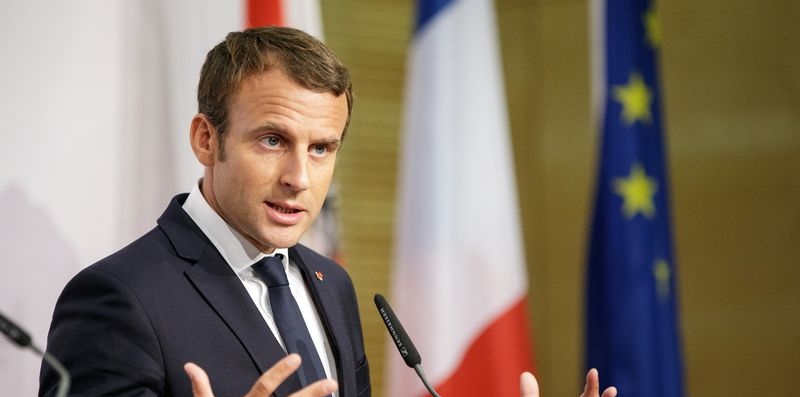Combating fake news
June 8, 2018 | Expert Insights

French lawmakers are currently debating the need to introduce a new law that aims to combat “fake news.”
It was introduced to limit the spread of fake news and disinformation during election periods especially on the internet.
Background
The term “Fake news” has become increasingly popular due to its linkage to debates surrounding democratic process and free speech in the information age. US President Donald Trump has taken credit for coining the term “fake news.” He has repeatedly criticized the media for what he deemed biased and “fake news,” attacking respected media outlets such as New York Times and CNN.
The term has been used by authoritarian leaders, such as Duterte and Maduro, in order to suppress and discredit unfavorable coverage. In a move that has been criticized as an attack on free press, Malaysia recently passed a law that allows jail terms of up to six years for spreading “fake news”. Singapore has also announced its intention to implement anti fake news legislation.
However, a more accurate use of the term refers to news stories that intentionally spread misinformation or false facts. In recent years, the growth of social media has enabled the spread of misinformation. Misinformation has the potential to cause social unrest and increase sectarian tensions. In some instances, such as the UK EU referendum, and the 2016 US Presidential elections, influence and misinformation campaigns are thought to have had a significant impact on the outcome of the vote. During the run-up to the election, major news providers, such as BBC, noted the prevalence of fake headlines such as “Hillary Clinton sold weapons to ISIS” and “Pope Francis endorsed Donald Trump for President.”
Considering that social media is now a primary source for news and information, several dangers surrounding the phenomenon of “fake news” are growing. The most high-profile example of misinformation in social media that could affect democratic values was the report surrounding the 2016 US presidential election. Determining the measure and countering the false news in the digital age is presently still in its early stages.
Analysis
During the election campaign in spring 2017, French President Emmanuel Macron was the subject of various fake news stories about alleged offshore accounts. His emails were also hacked during this period. Despite this, he won the election.
In January 2018, he first made the proposal to introduce a law to combat disinformation campaigns that occur online especially during big elections. At the time, he said that he wanted to act against what he called “propaganda articulated by thousands of social media accounts”. He added, ““If we want to protect liberal democracies, we must be strong and have clear rules.” He had also stated, “Thousands of propaganda accounts on social networks are spreading all over the world, in all languages, lies invented to tarnish political officials, personalities, public figures, journalists.”
The draft law is presently designed to stop the “manipulation of information” during election campaigns. The French government is seeking to enact the law in time for the European Union elections. It would allow political parties to complain about widely spread assertions that they think are either false or “implausible”. Then, within the span of 48 hours, a French judge makes a ruling and could immediately move to stop the publication.
Counterpoint
However, the law has been harshly criticized by the media and other politicians. Those who oppose the law have accused the French government of using the proposed law to institute censorship in the nation. Right-wing politicians Les Republicains accused the government of trying to create a “thought police.” In addition, at least one journalist union group has publicly stated that this law could be misused to hinder the work done by reporters. Meanwhile, left-wing politicians have noted that this was a form of censorship and have condemned the draft.
Assessment
Our assessment is that is that the spread of fake news, especially through social media has been a cause of concern for governments across the world, including India. We believe that the move by the French government to limit the spread of fake news and misinformation during the election period, especially on the internet, is laudable. However, we feel that the government must be very clear on the duration for which this law can be made enforceable, and take all necessary steps to ensure that this is not used as a tool to settle political rivalry.








Comments